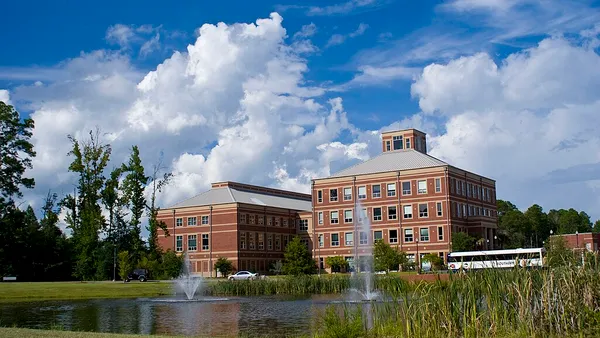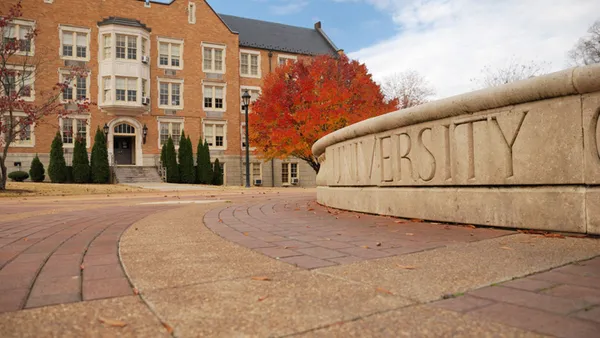Dive Brief:
-
North American college leaders were more likely to expect institutional revenues to decline amid the pandemic than officials in any other world region, according to a recent survey from the International Association of University Presidents and Santander Universidades shared with Education Dive.
-
Officials at North American schools were also the most likely to opt for online or in-person instruction this academic year. Worldwide, 73% of surveyed colleges prepared for hybrid or mixed instruction, compared to 62% of North American institutions.
-
Based on a survey of more than 700 university leaders from mid-July to mid-September, the report echoes other recent polls indicating college officials are worried about the pandemic's effect on enrollment and their institutions' financial health.
Dive Insight:
North American colleges may be the most worried about their finances in part because they tend to rely more on auxiliary revenue, such as housing and dining, than colleges in other parts of the world, IAUP president-elect Fernando León García said during a call with reporters.
"The overwhelming model that is present in North America — in particular, the U.S. and Canada — in some way involves residential education," he said. "In most other countries, you have residential education, but it is not the norm."
U.S. colleges that use debt to finance auxiliary facilities may struggle to make payments if revenue from those sources significantly declines, according to a recent report from Moody's Investors Service. Some schools, however, could use their reserves or cut expenses to offset decreases.
Pandemic-related budget challenges have led to massive cuts at certain schools. Guilford College, in North Carolina, told students last week that it will phase out several majors and eliminate three-dozen positions. The news followed employee cuts over the summer.
Colleges have reduced their workforce by at least 10% since the pandemic began, according to an analysis of federal data by The Chronicle of Higher Education. It does not cover employees of companies that contract with higher education institutions.
Similarly, the IAUP survey found that 70% of North American colleges responding planned to postpone hires — more than any other region. And nearly two-thirds of North American colleges indicated that faculty training has been a challenge this year.
Some teaching experts expect ramped-up professional development efforts will have long-term benefits for colleges, though they will have to overcome instructor burnout and a lack of funding to make a permanent shift.















